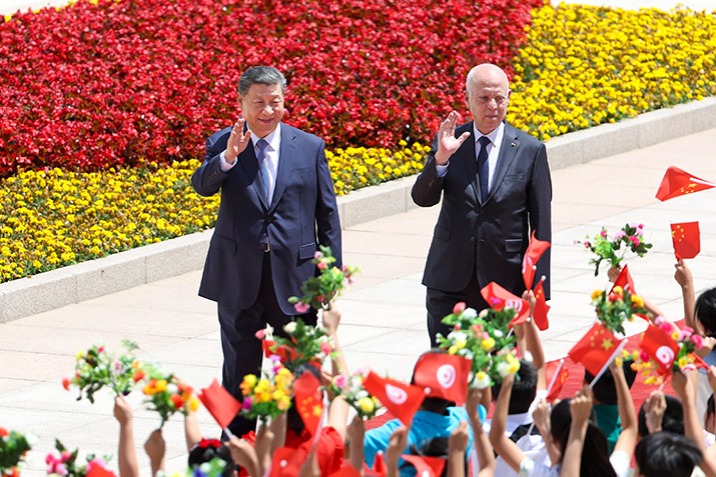Macao forum eyes closer ties, shared growth
China, Portuguese-speaking countries poised to promote broader cooperation

With growing cooperation between China and Portuguese-speaking countries, the two sides are geared for closer ties to drive growth, a multilateral conference in Macao heard on Monday.
"China is willing to work together with Portuguese-speaking countries to promote broader scope and higher levels of collaboration," Li Hongzhong, vice-chairman of the National People's Congress Standing Committee, said at the opening ceremony of the 6th Ministerial Conference of the Forum for Economic and Trade Cooperation between China and Portuguese-speaking Countries.
"By doing so, we can contribute more robust momentum to building a closely-knit community with a shared future for humanity, injecting greater certainty and positive energy into global stability and prosperity," said Li, who is also a member of the Political Bureau of the Communist Party of China Central Committee.
Li said China has become one of the most important economic and trade partners for Portuguese-speaking countries since 2003, with trade between the two sides growing twentyfold.
To promote further cooperation, Li said China will support the participation of enterprises from Portuguese-speaking countries in important exhibitions such as the China International Import Expo, while helping Chinese expand imports.
Efforts will also be made to improve agriculture in Portuguese-speaking countries, including through scientific research projects and laboratories, and to help those in Africa formulate economic development plans.
Li said China will provide government scholarships and 3,000 training opportunities for students studying in China.
Three hundred medical personnel will assist in healthcare in Asian and African Portuguese-speaking countries with traditional Chinese medicine centers to be set up where conditions permit.
The forum was initiated by the Chinese government in 2003, in conjunction with a number of Portuguese-speaking countries. It now includes all nine countries where Portuguese is an official language.
Since the forum's inception, five ministerial conferences and a special ministerial conference have promoted intergovernmental cooperation in fields including trade and investment, industry, human resources and healthcare, as well as education and cultural affairs.
A Strategic Plan for Economic and Trade Cooperation (2024-2027) was signed on Monday, laying out key areas and directions for economic and trade cooperation.
Portuguese Economy Minister Pedro Reis said the forum's achievements have been "remarkable" given the diversified areas of collaboration, and it has established a mechanism for long-term dialogue among participating countries.
He spoke highly of Macao's irreplaceable role as a bridge connecting participating countries and its importance in promoting multilateral exchanges.
"We should continue to harness the important role and potential of the dialogue platform between China and Portuguese-speaking countries," he said.
Francisco Tadeu Barbosa de Alencar, executive secretary of Brazil's Ministry of Entrepreneurship, Micro and Small Business, said closer trade ties have brought tangible benefits to joint development.
Exports to China by Brazil, South America's economic powerhouse and a BRICS member, were worth almost $106 billion last year — the first time its exports to a single country exceeded $100 billion.
"Each member of the forum boasts its unique specialty and experience, thus deepening economic ties will benefit all," he said.
- Former Shandon political advisor imprisoned for accepting bribes
- Australia launches studies program for China-Australia exchange
- Harbin Institute of Technology celebrates group student wedding with special diamonds
- Beijing hospital promotes clinical trial awareness and participation
- Community cinema: open-air magic in Yinchuan nights
- Drone captures rare moment: Porpoises frolic at sea


































